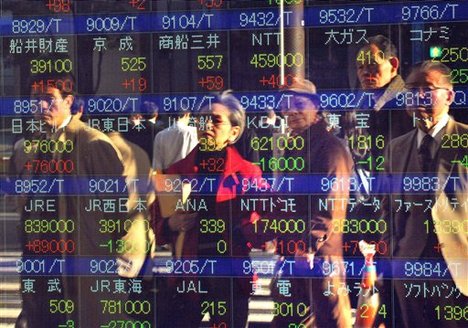Investing
Japan markets plunge: should investors panic?

After the Nikkei fell 7%, we ask is this a mere correction or the end of the Japan equity rally?
The Land of the Rising Sun has barely been out of the headlines this year, as the Nikkei 225, the leading Japanese stock market, went from strength to strength. Understandably, therefore, Thursday’s plunge of 7.3% will most likely have spooked even the most bullish of investors.
Since last year, when it became apparent that Prime Minister Shinzo Abe was going to take office, the markets have been on an unprecedented upward spiral.
Up until this week, the index had risen 70% in the last six months, as the markets responded well to the implementation of ‘Abenomics’ which saw the Bank of Japan aggressively pursuing a 2% inflation target in a bid to clamp down on the high inflation the country had been tackling for the past two decades.
On Thursday markets around the globe started retreating, and although on Friday we saw a slight pick-up, Japan’s fall is still significant.
Anaylysts point to a couple of factors that have led to this sell-off. Many say factors outside of Japan’s control are the reason for the Nikkei fall.
Adrian Lowcock of Hargreaves Lansdown says: “Investors remain very sensitive to political actions and comments by the Federal Reserve chairman Ben Bernanke combined with some weak economic data from China have sent markets into retreat with Japan leading the way. Very little has actually changed and the factors that have supported the recent run in share prices remains intact.”
The US Federal Reserve hinted on Wednesday that it may slow down the pace of its quantitative easing, stating that should the labour markets continue to grow in strength, it may start to taper off its $85bn-a-month asset purchasing programme.
Lowcock says: “Such a sharp fall appears to be an overreaction to what was the merest hint of a change in attitude from the US Federal Reserve.
“Markets never rise smoothly and falls or corrections are par of course when it comes to investing. It is important to put this is context; prior to Thursday the FTSE 100 had risen consecutively for 16 days, and even after the drop it has only slipped to levels seen last week. The FTSE 100 is up 13.8% in the year-to-date.
“To put it into perspective falls of 2% in western markets is not much given the recent growth we have had. Even a 7% correction in Japan needs to be taken in context, that market has had a very strong run in the last year.”
There are also concerns that volatility in the Japanese Government bond market will further disrupt the stock markets.
The benchmark 10-year bond yields have risen sharply over the past two months and moved up a further 1% Thursday morning for the first time in a year, suggesting to some that Japanese policymakers’ quantitative easing programme is leading to unintended consequences.
The Japanese Government has said that the recovery is still intact and has said that recent tumbles in the stock market will not derail its stimulus measures.
Andrew Rose, manager of the Schroder Tokyo fund, says it was in fact time for a market correction.
He says: “Nothing goes up in a straight line. The market was in line for a correction, I’m surprised it hadn’t happened yet. The market saw a 70% rise in six months and you could say that the time was ripe for profit taking.
“Another thing we should note is that there has been a lot of retail investor money in Japanese equities. As the stock market was going down, many of these investors, who use computer programmes to trade, would have been pulled out due to the limits they had set.”
Rose also believes that there is nothing fundamentally different in Japan for this sharp fall to be anything bigger than a pullback. Whether the pullback lasts longer than a few days will be key to how much confidence investors are willing to place on the Japanese stock markets.
Experts say that investors need to remain focused on their long term objectives and remember that over the longer term equities have tended to rise and out-perform other asset classes.
Whatever label investors put on this 7% drop in the Nikkei 225, for more adventurous investors this fall could be seen as an opportunity to get into Japan, while for others it could be the start of further terrifying lows to come in the world markets.